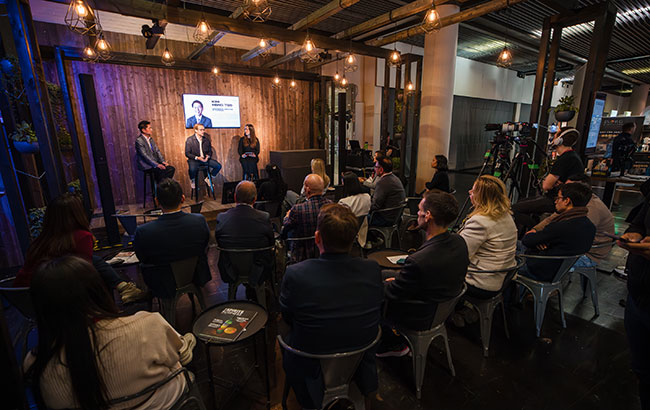What does the future of spirits pricing look like?
By Melita KielyAs economic and geopolitical tensions contribute towards rising production costs, brands must navigate the challenge of preserving their price positioning – but how?

Melita Kiely, editor-in-chief of The Spirits Business, interviewed Matthieu Gouze, commercial director at Maison Ferrand, and Kim Heng Teo, commercial director at El Supremo Rum, at The Spirits Business Hub at ProWein 2025. The duo shared insights into how rising global costs are shaking up the spirits market, and the impact this is having on various price points in the industry.
Among the challenges facing the industry, Heng Teo noted: “Something that actually raised alarm bells in me is that the US surgeon general is suggesting to put health warnings on the bottles. That, to me, could be an overnight game changer, just like tariffs; who’s stopping you from 200%, why not 500%, why not 2,000%? Those are things that can potentially disrupt whatever we are doing as an industry – not even talking about brands and categories – as a whole, practically overnight.
“I always say good sense and goodness is getting increasingly difficult because everybody is very drawn in, we are very inward-looking and if there’s one message I think we need to bring forth, it’s that we need to work together more. Whether it’s a category or as an industry because only with that, we are insured of a slightly better or more assured future.”
Heng Teo noted Europe as a region full of opportunities, despite its political challenges.
Gouze added: “The good thing with us, we do Cognac, we also do Planteray Rum and Citadelle Gin, so Europe is our stronghold. The main part of our business is being done in Europe. The US is very important to us as well; I would say 35%-38% of our turnover is in the US, so it’s a big market for us as well.
“Premium rum is happening in the US, but there’s something called ‘cover-over’ in the US, where the US government is reimbursing or paying back the taxes to Puerto Rico, so they have very, very good prices in the US. So it doesn’t help the premiumise the rum industry in the US. But still, for Planteray, it’s a big market.”
He added: “But when it comes to rum, Europe is by far the biggest market when it comes to premium rum.”
Absorbing extra costs
But as costs rise, and consumers find their disposable incomes increasingly squeezed, how long can brands absorb extra costs?
“At the end of the day, the consumer always decides,” said Gouze. “At the moment, we as brands have to adapt.
“We’re an independent company so we have more flexibility, let’s say, in terms of what we can do. So, it starts from talking to our suppliers, bottle suppliers, labour suppliers, all of them because they feel it as well – especially in Cognac, where everything is stopping at the moment. So, it’s to work together so you can work on the price builds along with your importer as well to absorb most of the cost.
“But also, it’s to have the flexibility to create new products that are more in line with new trends in the market, and that is something we’ve always done with Maison Ferrand when it comes to gin, rum, Cognac or liqueurs, to be very agile and to be very open to the market.”

Heng Teo continued: “For us, it’s very evident you have to give the buyers, the consumers, the trade, the belief and the trust that the brand is providing not only good quality, but an experience. An experience that can be shared, that can be remembered and enjoyed.
“Product and services-optimising, finding the best value, taking a longer-term view, and perhaps even coming together with likeminded brands and producers [who are] having the same challenge to try to find a greater economy of skill because, again, like I said, I believe that that with closer collaboration, there’s nothing that you cannot overcome.
“It’s just that for all intents and purposes, we tend to take a shorter view of a lot of things – especially if you are listed, you’re a public company. Your numbers are being looked at every day, every hour, but for those of us who are fortunate not to be that accountable publicly, there’s an opportunity for us to come together to work.”
Click the video below to watch the full interview and for further insights.
For additional video content, visit The Spirits Business’ YouTube channel.
Related news
ProWein 2026: bigger and wider perspectives
